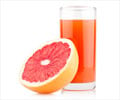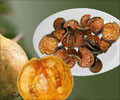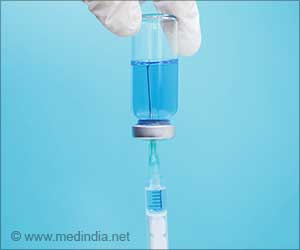Grapefruit juice prolongs the QT interval; this finding has implications for patients taking medications that prolong the QT interval and may have implications for patients with congenital long QT syndrome.

‘Patients with a long-QT syndrome or patients who use QT-prolonging drugs should be given adequate information about the effects and probable abnormal heart rhythms caused by having grapefruit juice.’
Read More..




These drugs work mainly by blocking a specific "IKr" potassium channel on the myocardial (cardiac muscle) cell membrane, thus prolonging the repolarization in the ventricles of the heart. Abnormalities in the QT interval can also be caused by genetic conditions such as long QT syndrome. Read More..
"With so many drugs, of such varied composition blocking the IKr channel, it is reasonable to assume that food compounds may also have IKr-channel-blocker properties, raising the possibility that 'proarrhythmic food' exists," explained Sami Viskin, MD, Department of Cardiology, Tel Aviv Sourasky Medical Center and Sackler School of Medicine, Tel Aviv University, Tel Aviv, Israel, who led the study. "Previous studies showed that flavonoid compounds contained in grapefruit juice have IKr channel- blocking properties. We therefore tested the possibility that grapefruit juice has QT-prolonging properties."
Investigators tested the effects of grapefruit juice on the QT interval following the same stringent criteria used by the pharmaceutical industry to test new drugs before market release.
The study was performed according to the "Guidelines for the Clinical Evaluation of QT/QTc for Non-antiarrhythmic Drugs," namely, a randomized crossover design, accurate and blinded QT analysis. As positive control, they used moxifloxacin, an antibiotic with known, albeit small, QT-prolonging properties.
Thirty healthy volunteers and ten patients with congenital long QT syndrome participated in a four-day thorough-QT-study. On days one and three, study subjects received no study drugs and underwent multiple electrocardiogram (ECG) recordings to test for the spontaneous daily variability, and spontaneous day-to-day variability of their QT interval. On days two and four, healthy participants received either moxifloxacin (one oral dose of 400 mg) or grapefruit juice (two liters in three divided doses hours apart) in random order. The patients with long QT syndrome received only grapefruit juice.
Advertisement
Dr. Viskin and colleagues summarize the implications for patient subgroups as follow:
Advertisement
"The net increase in QT interval caused by grapefruit among healthy volunteers was small, but in the range that, if grapefruit juice were a new drug in development, the results of the present study would probably lead the FDA to call for additional studies before issuing a final recommendation based on its expected benefits and risks," commented Dr. Viskin.
Source-Eurekalert












